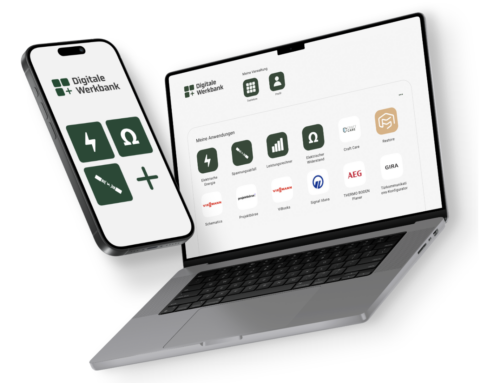Venture Client / Venture Clienting – What is it and who can do it?
Venture Client – you may have heard this term quite often lately. But what exactly does it mean? And is it worthwhile for you and your company to become a venture client? In this article, you will learn everything you need to know about this.
Venture Client – What does it mean?
Venture clients are companies that become targeted customers of the first hour of startups that develop innovative solutions for the respective industry. The term was coined – in reference to venture capital – by Gregor Gimmy, Co-Founder and Managing Director at 27pilots. Venture clienting involves certain risks, because especially with young startups it is not yet certain that they will survive in the long term, but it also brings numerous advantages.
Advantages of venture clienting or a client relationship with startups at a glance
- Venture clients are the first to benefit from new solutions and innovative ideas for their industry and are thus one step ahead of competitors.
- Venture clients can not only buy brand new products, but also shape and support their further development.
- Venture clients drive innovation within their own company by integrating new startup products directly into their development department and work processes.
- Venture clienting is much less complicated and faster than a joint venture or even the purchase of startups, because lengthy coordination processes and legal steps are eliminated.
- Venture clients can more easily exploit market innovations for themselves without taking on high risks due to the lower legal, financial outlay compared to participation.
- Venture clients can also become companies that do not have the financial means to act as investors.
Which companies can become venture clients?
The good news is that venture clients, basically customers of startups, can become any company – from medium-sized businesses to large corporations. Even startups themselves have the opportunity to become venture clients when they buy innovative products from other companies to drive their own business. However, in order to invest in trustworthy startups and meaningful products, it is important to bring expertise on board. This can happen in the form of establishing their own venture client unit or by cooperating with experienced startup matchmakers who know the requirements of established companies as well as the startup ecosystem.
How do corporations go about becoming venture clients?
It can make sense for corporations to establish their own venture client unit. This acts as an interface between the startups or the startup ecosystem and the individual departments that want to integrate innovative solutions into their processes. Companies that have established their own venture client units include BMW (BMW Startup Garage), Bosch (Open Bosch) and Siemens Energy (Siemens Energy Ventures).
These units not only specialize in finding suitable startups, but also help overcome the cultural hurdles that can exist when established companies and young startups collaborate.
However, to establish venture client units, companies need expertise in innovation and startups. If this is not yet available in-house, it is advisable not to let employees reinvent the wheel, but to hire experienced startup experts and innovation managers or to use external service providers.

How can small and medium-sized companies become venture clients?
Venture clienting is also worthwhile for small and medium-sized companies. Particularly in the areas of automation and digitization, startups can offer them valuable solutions that help to accelerate processes, provide new added value for customers, or take the pressure off the team in times of a shortage of skilled workers.
At the same time, SMEs face the challenge of having limited financial and human resources to fall back on compared to corporations when it comes to the decision to buy startup products.
Therefore, to become venture clients while avoiding risks, companies should work with experts who know the startup scene and can guide the entire process.
How does Ambivation support companies that want to become venture clients?
As a matchmaker for startups and established companies, we support companies worldwide that want to benefit from the innovative ideas and solutions of the startup scene. We accompany our clients from the planning stage, through the identification of suitable startups, to the decision for a suitable form of cooperation, be it, for example, a customer relationship, an investment or even the acquisition of the company. Depending on the requirements, we support our clients in setting up a venture client unit, help with specific challenges or take over tasks of the venture client units as an external partner, e.g. through startup scouting, the organization of a startup challenge or our software solution for the startup scouting workflow. Feel invited to reach out to us if you like to learn more.
Partners instead of competitors – successful cooperation between startups and established companies
In our daily work we experience again and again how unique synergies arise from the cooperation of startups and established companies. Venture clienting leads to a win-win situation if it is done well and suitable partners find each other.
Are you curious and would like to learn more about how established companies have integrated startup solutions? Then read our collaboration interviews and don’t forget to subscribe to our monthly newsletter with news from the startup world.
Examples of successful collaborations between startups and established companies:
Reuse of building materials: Karstadt relies on startup Concular
Battery storage optimization: LEAG energy cubes cooperate with NOVUM
Health Tech: eCovery cooperates with AOK PLUS
About Ambivation

Ambivation connects innovative companies and startups for cooperation and innovation partnerships. As an innovation consultancy and matchmaker, Ambivation promotes cooperation between established companies and startups within the framework of concrete customer, supplier and research partnerships. We support companies in the identification of needs, startup identification, startup evaluation and cooperation initiation with startups. Formats such as research on relevant startups, startup monitoring, strategic cooperation consulting or event formats such as startup tours serve this purpose. Our monthly newsletter also provides information on current examples of cooperation and events.






